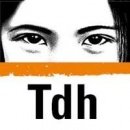Consultant: to develop a Status Report
Job Description
This job listing expired on 2019-02-04
Browse Latest Jobs
when applying to a job online , never give your
credit card or bank account information,
or perform any sort of monetary transaction to a prospective employer. For your privacy and protection:
Latests Jobs By
Terre des hommes - Switzerland
Job Title
Date Posted
Child Protection Facilitator
Gaza Strip
11, Jul
Program Coordinator - (Head of Programme)
Jerusalem, Ramallah
12, Jun
Project Manager
Gaza Strip
27, Mar
Senior Grant Officer
Jerusalem
27, Feb
MEAL Officer
Jerusalem
11, Feb
Logistics Officer
Jerusalem
10, Feb
Communication Officer
Jerusalem
5, Feb
Senior Grant Officer
Jerusalem
12, Dec, 2024






